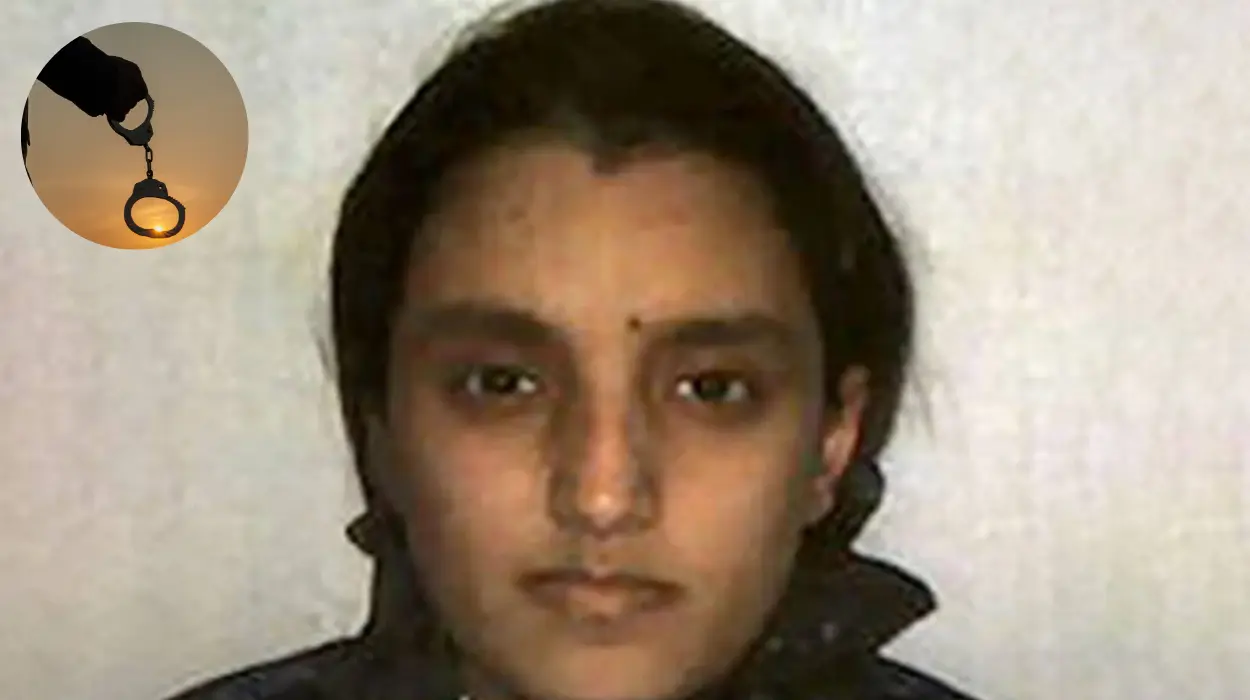Key Points:
- Roshonara Choudhry, 36, will be released from prison following a Parole Board ruling on 20 May 2025.
- She stabbed Labour MP Stephen Timms in East Ham in 2010 in an Al-Qaeda-inspired attack.
- Choudhry was sentenced to life with a minimum term of 15 years.
- The Parole Board described her behaviour in custody as “exemplary”.
- She participated in de-radicalisation programmes and developed “a high level of insight”.
- Conditions for release include a designated address, curfew, and no contact with the victim.
- Attack was considered the first known Al-Qaeda-inspired assassination attempt on a British MP.
- Stephen Timms survived life-threatening injuries and has remained active in Parliament.
- Choudhry was radicalised by online lectures by Anwar al-Awlaki.
A British woman who attempted to murder Labour MP Stephen Timms in an Al-Qaeda-inspired knife attack in 2010 is set to be released from prison after serving her 15-year minimum sentence, following a decision by the Parole Board.
- Key Points:
- What did the Parole Board say about Choudhry’s release?
- Who is Roshonara Choudhry and what did she do?
- How serious were Stephen Timms’ injuries?
- Was mental illness a factor in the attack?
- What rehabilitation efforts did Choudhry undertake in prison?
- What are the conditions of her release?
- What impact did the case have at the time?
- Who is Anwar al-Awlaki and what role did he play?
- How has Stephen Timms responded to Choudhry’s release?
- What legacy does the case leave behind?
What did the Parole Board say about Choudhry’s release?
As reported by Arab News, the Parole Board concluded on 20 May 2025 that Roshonara Choudhry no longer poses a threat to the public. It stated:
“Her imprisonment was no longer necessary for the protection of the public.”
According to Arab News, the panel found that Choudhry had shown “a very high level of insight and understanding of herself,” and added:
“She would no longer be likely to be influenced by other people with strong negative views, having developed the ability to critically evaluate information and to seek help from professionals if she needs it.”
Choudhry’s release comes with stringent licence conditions. These include residence at a designated address, curfew requirements, and a strict prohibition on any contact with Stephen Timms.
Who is Roshonara Choudhry and what did she do?
Choudhry, who was 21 at the time of the attack, was a student at King’s College London. On 14 May 2010, she attended a constituency surgery held by Stephen Timms at the Beckton Globe Library in east London and stabbed him twice in the stomach with a kitchen knife.
As reported by Arab News, Choudhry told police the attack was “punishment” for Timms’ vote in support of the 2003 Iraq War. She was later convicted of attempted murder and two counts of possessing an offensive weapon.
The court heard that she had been radicalised after watching more than 100 hours of online sermons by Al-Qaeda cleric Anwar al-Awlaki. Prosecutors described the case as the first known Al-Qaeda-inspired attempt to assassinate a politician on British soil.
How serious were Stephen Timms’ injuries?
Stephen Timms, then Labour MP for East Ham and serving as a minister of state for social security and disability, suffered life-threatening injuries. The knife pierced his liver and stomach. He was rushed to hospital and underwent emergency surgery, ultimately making a full recovery.
Despite the trauma, Timms has continued to serve in Parliament. He has since spoken publicly about the incident and supported efforts to remove extremist content from online platforms.
Was mental illness a factor in the attack?
During her trial in 2010, Choudhry refused to recognise the court’s authority and declined to appear in the dock. Medical experts found no evidence of mental illness. Instead, her radicalisation was attributed to exposure to online extremist material.
What rehabilitation efforts did Choudhry undertake in prison?
According to Arab News, the Parole Board was satisfied that Choudhry had made significant progress while in custody. She engaged in programmes aimed at helping her understand the root causes of her beliefs and actions. The panel described her conduct as “exemplary”.
The report noted:
“Ms Choudhry had demonstrated that she could manage her emotions and make thoughtful, considered decisions.”
Her reassessment suggests a reduced risk of reoffending, with the Board stating she had become capable of seeking help if needed and of critically analysing ideological narratives.
What are the conditions of her release?
The Parole Board has set multiple restrictions on Choudhry’s release. These include:
- Living at a specified address approved by authorities.
- Compliance with a curfew, likely enforced with electronic monitoring.
- No contact with Stephen Timms, directly or indirectly.
- Regular reporting to probation officers and continued risk assessments.
Any breach of these conditions could result in her recall to prison.
What impact did the case have at the time?
The attack sent shockwaves through British politics. It raised serious concerns over the security of MPs and the ease with which individuals could be radicalised online.
Choudhry’s case highlighted the dangers posed by extremist content on platforms like YouTube. Following her conviction, MPs including Timms urged tech companies and regulators to take firmer action against terrorist propaganda.
The stabbing also prompted increased discussion on safeguarding politicians, especially during public events and surgeries.
Who is Anwar al-Awlaki and what role did he play?
Anwar al-Awlaki was a US-born radical cleric associated with Al-Qaeda in the Arabian Peninsula (AQAP). He was known for his English-language sermons targeting Western Muslims. Choudhry had reportedly watched dozens of his lectures, which glorified jihad and condemned Western military interventions in Muslim countries.
Al-Awlaki was killed in a US drone strike in Yemen in 2011, but his content continued to circulate widely online. British intelligence agencies and counter-terrorism experts have cited his influence in numerous radicalisation cases.
How has Stephen Timms responded to Choudhry’s release?
As of now, Stephen Timms has not publicly commented on the latest Parole Board decision. In past interviews, he expressed a willingness to meet with Choudhry if she demonstrated genuine remorse. He also emphasised the importance of tackling online extremism and protecting public servants from similar attacks.
What legacy does the case leave behind?
The stabbing of Stephen Timms remains one of the most high-profile examples of lone-actor terrorism in modern British history. It underscored how digital radicalisation could influence young individuals to commit acts of political violence.
Choudhry’s impending release brings renewed attention to questions of rehabilitation, public safety, and the state’s role in monitoring reformed extremists.



